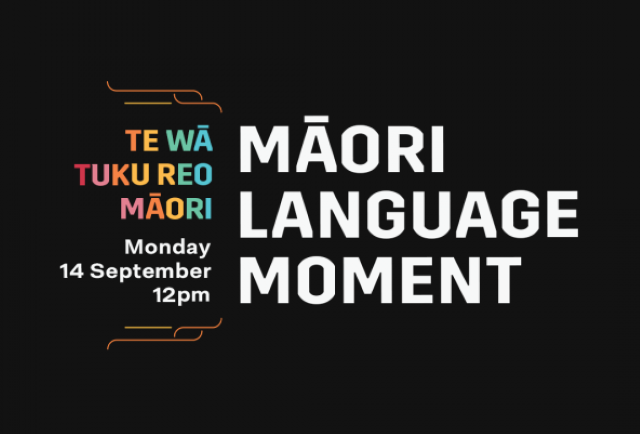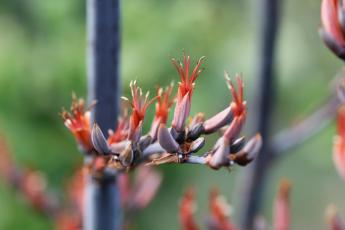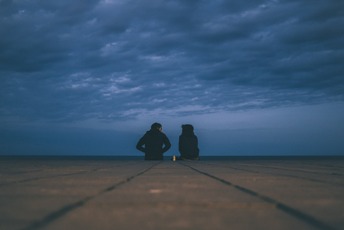Te Wiki o te Reo Māori 2020; online safety resources in te Reo Māori
Mon 14 Sep 2020
Te Wiki o te Reo Māori is 14 - 20 Mahuru (September) this year. The theme for 2020 is again 'Kia Kaha te Reo Māori' - 'Let’s make the Māori language strong'.

Te Wiki o te Reo Māori | Māori Language Week has been celebrated each year from 1975. This year, the week started off with a Māori Language Moment at 12pm on Monday 14 September, with the goal of getting 1 million people speaking, singing and celebrating te reo at the same time.
Te Taura Whiri i te Reo Māori (Māori Language Commission) says "We may have cancelled our Māori language parades this year but the Coronavirus or Mate Korona won’t stop us bringing people together.
What people do could be as easy as café owners playing a Māori language song, office workers pausing to do the quiz in te reo, school students starting lunch with a karakia or a haka and media outlets beginning their 12pm news bulletin with te reo. You could zoom in te reo or perhaps you could gather for a karakia or waiata."
Visit the Te Wiki o te Reo Māori website to find ideas and resources to participate. Te Wiki o te Reo Māori is also a great time for organisations to think about what you be doing to promote revitalisation. One way to get started is to think about developing a Māori language plan.
Te Taura Whiri i te Reo Māori (Māori Language Commission) is also turning the Te Wiki o te Reo Māori website into the Reo Māori website - a year round resource to support the revitalisation of te Reo Māori.
New short video on family violence in te Reo Māori and English
A new short animation on seeking help for family violence is available online through Facebook in both te reo Māori and English.
New resources for online safety in te Reo Māori
Netsafe has made two of their resources available in te Reo Māori. Te Haumaru Tuihono (Staying Safe Online Guide) has tips on how to stay safe on popular digital platforms including Google, Twitter, Facebook, Instagram, YouTube, TradeMe and Netflix.
Kete Haumaru Tuihono Mā Ngā Mātua (Online Safety Parent Toolkit) is for parents and whānau to help them talk with tamariki and rangatahi about online safety. These booklets are also available in English, Tongan, Samoan and simplified Chinese.
Some resources from the government's Keep It Real Online campaign are available in te Reo Māori. The website provides information about te whakaweti tuihono (online bullying), karihika (pornography), te poipoi tuihono (online grooming) and pūrongohia ngā ihirangi (how to report harmful or illegal content).
The brief Online and ICT-facilitated violence against women and girls during COVID-19 (UN Women , April 2020) highlighted an increasing risk of online and technology violence as more people use online methods to connect. Netsafe's quarterly report for April - June 2020 reported their highest number of personal harm reports in a quarter.
Te Whare Māori portal on NZFVC website
The Te Whare Māori portal on the NZFVC website is updated weekly with a wealth of information, kōrero, and activities to support whānau Māori and Māori community providers through COVID-19 and beyond. The portal is by Ngā Wai a Te Tūī Māori and Indigenous Research Centre and has three pou:
- Pou Āwhina - Information on support and services available
- Pou Manaaki - Activities to keep well and safe
- Pou Kōrero - Conversations, interviews and commentaries to support whānau living in these extraordinary times
The Pou include new resources, articles, videos and more.
Searching the NZFVC library in te reo Māori
To support the revitalisation of te Reo Māori, the Clearinghouse uses te Reo Māori topic terms in our library. We also have a Te Reo Māori Quick Topic Search page which highlights commonly used terms. Searching by the Te Reo Māori Quick Topic Search terms will help you find material in our library that is by at least one Māori author and/or has a significant amount of content related to Māori.
Image: Te Taura Whiri i te Reo Māori (the Māori Language Commission)






